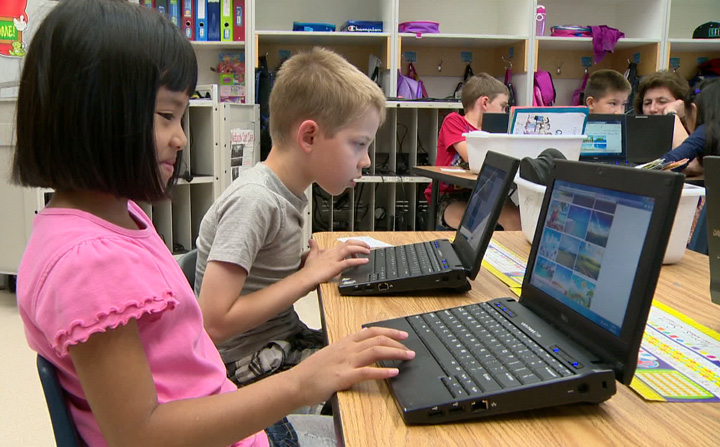This fall the B.C. government is kicking off a three-year transition to a new curriculum in schools across the province, starting with students in kindergarten to Grade 9.

In a press release, the Ministry of Education says “today’s students need the right skills to succeed in tomorrow’s world.”
Students will continue to learn the basics like reading, writing and arithmetic, but the new curriculum will also focus on collaboration, critical thinking and communication skills to better prepare them for college, university and the work force.
The ministry states that the plan is to allow students to learn about the core subjects while doing projects related to their interests, whatever that may be.
The curriculum also includes:
- renewed emphasis on environmental sciences;
- Aboriginal perspectives integrated throughout all grade levels;
- the history and ongoing legacy of the residential school system; and
- new content regarding historical experiences of East and South Asian immigrants.
The curriculum will be fully implemented in all schools in fall, 2016. The entire K-12 curriculum will be phased in by the 2017 to 2018 school year.
“Every district or region might come in with a different approach of how they are going to phase in this transition year,” Bernier said.
“Those decisions are going to be made locally, with each school district working with their teachers to ensure that they are comfortable.”
The new curriculum comes at a stable period in B.C.’s historically tumultuous education system, he said.
A strike last year by the province’s 40,000 public-school teachers resulted in a late-September start to the school year.
- B.C. teen’s killer says new TV show about Reena Virk’s murder ‘disrespectful’
- ‘A new beginning’: First Nation ravaged by B.C. wildfire unveils new subdivision
- Man accused of Victoria carjackings arrested a third time in as many days
- ‘If we stay with it, they will come’: Canucks sticking to game plan with series tied 1-1
But the five-week strike ended with teachers and government signing a six-year contract.
“This is an opportunity for us as a province, with teachers and parents to make sure no matter how your child learns (he or she) is going to get the skills to be successful in the future,” said Bernier.
Jim Iker, president of the BC Teachers’ Federation, said members were included in all aspects of the curriculum development and are supportive and comfortable with the changes.
He said the phased-in approach gives teachers and school districts necessary opportunities to test-drive the program.
Iker said teachers have concerns about funding for extra costs, especially classroom resources, that are bound to result.
Bernier said more than 100 teachers and top-notch education experts worked together for three years to create the flexible learning curriculum.
He said regular report cards with letter grades assessing student achievement will remain integral parts of the new curriculum.
-With files from Canadian Press




Comments